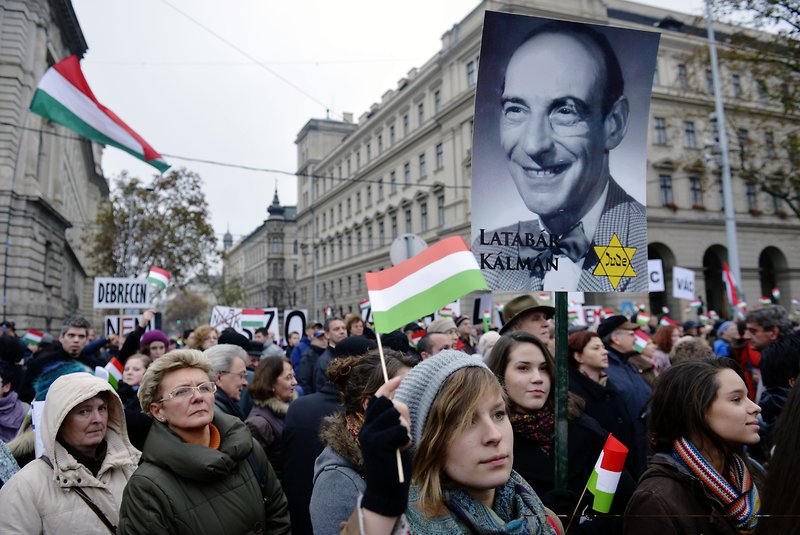 Unless your name is Oskar Schindler, making a list of Jews has never led to anything positive. Last week, in a shocking and disgraceful turn of events, Hungarian Parliament member Marton Gyongyosi offered a vile tidbit of advice in response to the recent Mideast turmoil — the radical nationalist Jobbik party member declared that Jews within his government are a “national security risk” and recommended keeping a record of Hungarian Jews.
Unless your name is Oskar Schindler, making a list of Jews has never led to anything positive. Last week, in a shocking and disgraceful turn of events, Hungarian Parliament member Marton Gyongyosi offered a vile tidbit of advice in response to the recent Mideast turmoil — the radical nationalist Jobbik party member declared that Jews within his government are a “national security risk” and recommended keeping a record of Hungarian Jews.
Let’s give Gyongyosi the benefit of the doubt, and assume that he misspoke and did not intend to come off as a bigoted neo-Nazi. Indeed! He later claimed to have been misquoted, and clarified that “he had only meant to warn of the danger posed by Hungarian Jews who serve ‘Zionist Israel.’” Well now, that certainly explains everything. Crisis averted, right?
While Hungarian Prime Minister Viktor Orban denounced Gyongyosi’s statements, he didn’t exactly radiate virtuous conviction — it took him nearly a week to react.
As anyone would expect, the abhorrent expression of anti-Semitism within the ranks of the Hungarian government immediately summoned a deluge of harsh denunciations from around the world. Gyongyosi obviously referenced Nazi rhetoric that had finally reached a state of dormancy, only to be thrust to the foreground — generating quite a bit of raw fear.
Gyongyosi’s words are despicable and revolting. But before we attribute his pronouncement to a growing trend of anti-Semitism throughout Europe (which is a reality, no doubt), we should look at the public reaction.
Following his comments, tens of thousands of Hungarians flooded Budapest’s Lajos Kossuth Square, taking a firm stand against the lawmaker’s remarks and anti-Semitism in general. Jews and non-Jews alike from many different political parties took to the streets, wearing yellow stars of David, waving flags, supporting banners — proclaiming their solidarity with the Jews.
Referring to the 500,000 Jews murdered in Hungary during the Holocaust, parliamentary group leader Antal Rogan (a member of the ruling Fidesz party) clearly stated that “We cannot allow things which belong to the darkest pages of history books to repeat themselves [and] we do not want to live together with such malicious racist comments which we heard from Marton Gyongyosi.”
The enormous outpouring of support prompted Simon Wiesenthal Center’s Israel director Efraim Zuroff to claim that the rally was “the most important demonstration since Hungary became a democracy” (Times of Israel).
Amidst the relentless attacks on Jews throughout the world, we can take temporary solace in Hungary’s expression of good will towards the Jewish people. We often become entangled in the perceived consequences of a wayward anti-Semitic remark; instead of marginalizing the vitriol, we unwittingly use it to represent majority sentiment. In this case, Gyongyosi’s words cannot function as a litmus test — the torrent of Hungarian outrage has proven this.
Anti-Semitism is alive and well in the world, there will always be hatred towards the Jews, and we should handle the issue with extreme caution and complete seriousness. However, it is equally (if not more) important to point out the examples of support for the Jewish community.
Hungary is not descending into a dark cloud of anti-Semitic chaos. Despite Marton Gyongyoski’s best efforts, Hungarian Jews are safe for the time being. People from all over the political spectrum have come together in camaraderie. As Antal Rogan firmly and concisely stated, “Hungary defends its citizens.”
Before we move on to lament the next anti-Semitic incident, let’s enjoy the moment.

